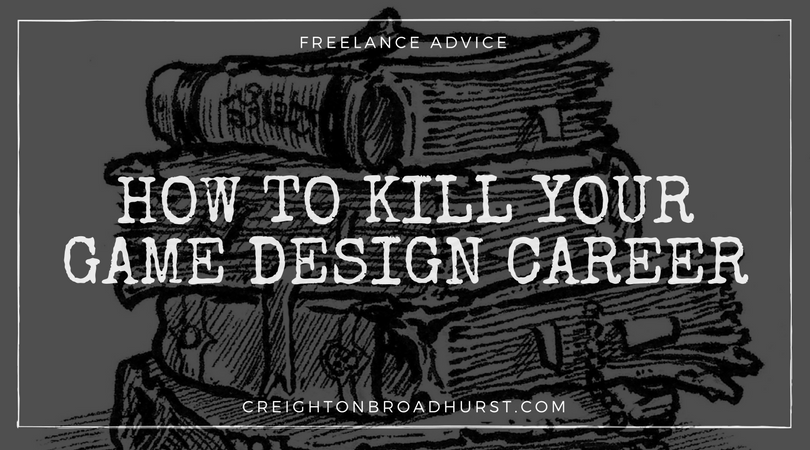You are amazing and your designs are awesome. You have a rare talent and really you should be treated differently to other freelancers. After all, you are doing the publisher a favour working for his company…
I originally thought of this article title as a joke in an idle moment. I was brainstorming article titles and before I knew it, I was scribbling notes as I thought, “Yup, that reminds me of designer X and that reminds me of designer Y.” Although I’ve previously written about a freelancer’s Golden Rules, it’s just important to list the various pitfalls a freelance designer can fall into.
- Who Needs a Spell Checker – That’s The Editor’s Job: The devil’s in the details. Create compelling content by all means, but before you turn over your work edit it at least twice and expunge as many typographical and grammatical errors as possible. Doing so is professional. Not doing so is not only unprofessional but creates extra work and frustration for other people. This potentially adds delays and costs to a project.
- Ignore the Rules: When writing your piece, follow the rules as written. Don’t create exceptions, house rules and suchlike. That’s a GM’s job, not a designer’s (unless you are writing a variant rule system or crunch-heavy supplement). Doing this either irritates end users (the players and GMs who discover the skill, feat, spell or whatever doesn’t work as expected) or forces the editor to make wholesale changes to your work.
- Miss Deadlines: Deadlines are not a suggestion as to when you should turnover the project. View a project deadline as you would a deadline in a “proper job.” If at all possible, you need to hit your deadline. Sometimes real life gets in the way and being late is inevitable. If this happens, communicate with the publisher immediately so he can make plans. Be honest about the reasons. You would not believe how many times I’ve been told about deaths or serious illness in the family days before a turnover.
- Argue with Reviewers: Don’t argue with reviewers who are foolish enough to not love your work. Doing so just makes you look like an arse. Feel free to discuss the review, but do so politely and remember your public interactions on the internet reflect both on you and the company for which you work.
- Argue with Publisher: Arguments with the publisher normally occur when a freelancer doesn’t like edits or changes made to a project. I once had a designer complain repeatedly and at great length about a tavern’s name change and some minor cosmetic changes made to a NPC. As you can imagine, I so rushed to work with him again.
- Too Little Communication: You are not too busy designing to answer that pesky publisher’s emails. Quiet freelancers make publishers very nervous.
- Too Much Communication: You’ve been contracted to design Project X. Once the project has been defined and a storyboard or outline agreed you don’t need to pester your contact with questions about every little detail. Just go with it.
So there you have it. Don’t do any of the above and you are on the way to a successful freelancing career.
Help Fellow Freelancers
Got any more hints for what not to do as a freelancer? Share them in the comments below and help other gamers dodge the pitfalls of a freelance career!

Regarding the last point, one of my favorite points in working with someone is when I can learn to trust them, then lean on their imagination.
I love when I can provide a high-level view and the points I must have, then let them do as they will because they do it better than I would. I’ve commissioned a couple pieces of art where I described the personality of the creature involved, a couple salient features (like T-Bag’s crude copper ‘bling’ necklace that said ‘TBag’ and his “yeah, sure, I’ll try that” grin), and suggested a pose, then the artist took it from there and came up with something that delighted me. I’ve got a few other artists in mind that I want to work with when I can afford them that I can give similarly light specifications because I know they’ll do something amazing for me, at least some of the time.